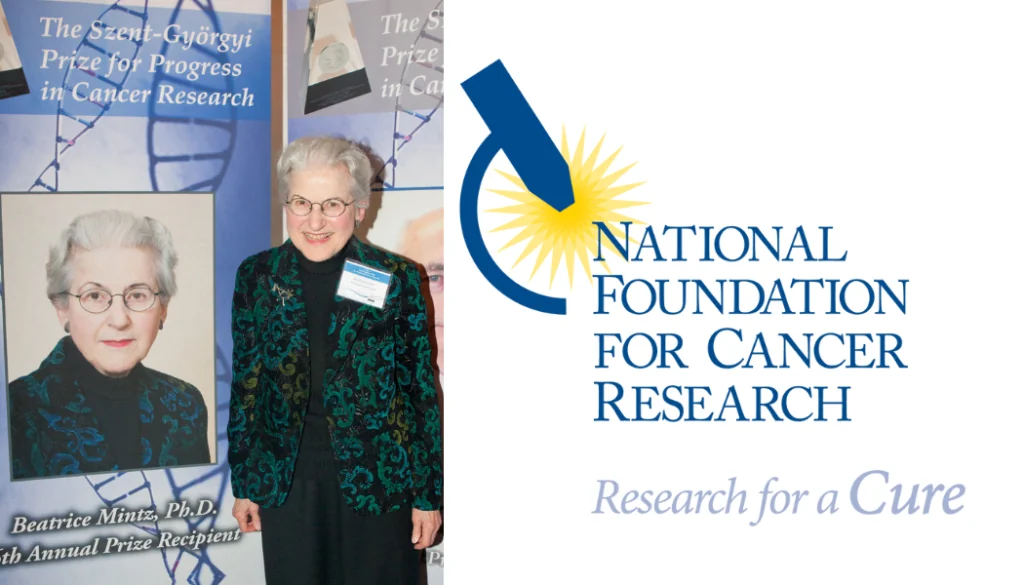In Remembrance of Dr. Beatrice Mintz

The National Foundation for Cancer Research remembers and recognizes the contributions of Beatrice Mintz, Ph.D., who passed away on January 3, 2022, at the age of 100. We are saddened by her loss.
Dr. Mintz was the winner of NFCR’s 2011 Szent-Györgyi Prize for Progress in Cancer Research for “her discoveries of the relationship between development and cancer, based on construction and analysis of chimeric (of multiple genotypes) and transgenic (with foreign DNA) mouse models.” Additionally, she later served on the Szent-Györgyi Prize selection committee, including in 2012 as its chair, helping to further increase public awareness about the impact of cancer research.
Dr. Mintz spent over 50 years at what is now the Fox Chase Cancer Center in Philadelphia, Pennsylvania, much of that time as the Jack Schultz Chair in Basic Science. Her contributions to the field of cancer research are myriad. Among other impacts, Dr. Mintz’s work enabled the study of cancer and other genetic diseases to be carried out within the framework of the whole organism. “Bea,” as she was affectionately known to her associates, was responsible for not one but rather multiple transformative scientific breakthroughs and discoveries. These include:
- Development of the first transgenic mice—that is to say, mice with foreign (such as human) DNA as part of their makeup.
- Demonstration of the importance of stem cells to the development of an organism.
- Proof that the stem cell of a teratocarcinoma (a cancer of the testis) can be effectively “reprogrammed” into a normal cell when injected into a mouse embryo, with the result being a healthy mouse with no trace of cancer.
Each of these “firsts” has transformed basic laboratory research and been applied not only in medical science but also in such other areas as animal husbandry and agriculture. Crops genetically modified to resist drought or pests, for example, are direct descendants of Dr. Mintz’s work on mice in the lab.
A world without cancer is possible. Help us turn lab breakthroughs into life-saving realities.

5.7 Million+
Donors who have fueled NFCR’s mission

$420 Million+
Invested in high-impact research & programs

36+ Labs & Hundreds of
Nobel Laureates & Key Scientists received NFCR funding, driving breakthrough research












